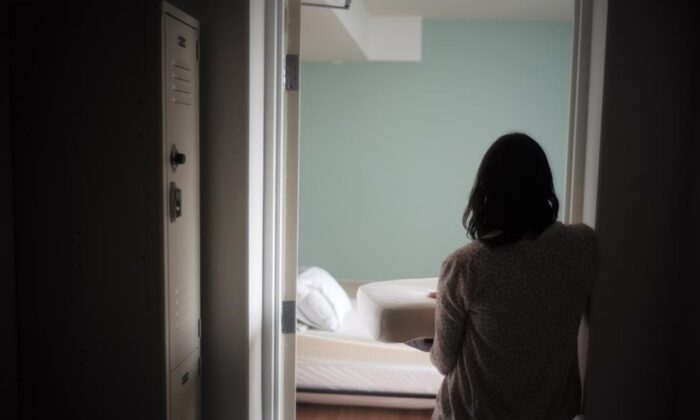A new national survey by Women’s Shelters Canada offers a glimpse into the experiences of front−line workers and women fleeing violence during the COVID−19 pandemic, with reports of clients facing more violence that is also increasing in severity.
The Shelter Voices survey says 52 per cent of 266 participating shelters reported seeing clients who were experiencing either somewhat or much more severe violence, as public health measures aimed at fighting COVID−19 increase social isolation, while job losses fuel tension over financial insecurity in many households.
Violence “was also happening more frequently, or abusers who hadn’t used violence in the past were suddenly using violence,” said Krys Maki, the research and policy manager for Women’s Shelters Canada.
The survey also found 37 per cent of shelters reported changes in the type of violence clients faced, including increased physical attacks resulting in broken bones, strangulation and stabbings.
Shelters and transition houses that did not report changes in the rates or type of violence were often located in communities that had seen fewer cases of COVID−19, the report notes.
The data show public health restrictions have a “huge impact on women and children who are living with their abusers,” said Maki.
The survey says 59 per cent of shelters reported a decrease in calls for help between March and May, when people were asked to stay home, and businesses, workplaces and schools shut their doors.
From June to October, “as soon as things started up again, we see a huge increase in crisis calls and requests for admittance,” said Maki.
The survey includes responses from shelters and transition houses in rural and urban areas in every province and territory.
Just over half of the shelters in population centres with 1,000 to 29,999 residents reported increases in crisis calls between June and October, said Maki, compared with 70 per cent of shelters in urban centres with populations between 100,000 and just under a million.
Women in smaller communities may be more hesitant to reach out for help, said Maki, “because everybody knows everyone, and everyone knows where the shelter is, too.”
While the survey shows women are facing more severe violence at home, at the same time, 71 per cent of shelters reported reducing their capacity in order to maintain physical distancing and other public health measures aimed at stopping the spread of COVID−19.
It was more common that shelters in large population centres had to cut their capacity.
To continue serving women remotely, 82 percent of shelters and transition houses reported purchasing new technology, such as tablets, phones and laptops, although limited cell service and internet connectivity pose challenges in rural and remote areas.
For many shelters, financial difficulties increased throughout the pandemic, as 38 per cent reported raising significantly less money compared with last year.
The shelters were mostly appreciative of the federal government’s emergency funding in response to COVID−19, with some reporting it kept them open, while others said they had to lay off staff because the money didn’t go far enough.
The federal government announced last month it would double the initial amount it was providing to gender−based violence services in response to the pandemic for a total of $100 million, some of which has been distributed through Women’s Shelters Canada.
The survey found more than three quarters of the shelters faced staffing challenges during the pandemic. That’s not surprising, the report notes, since women make up the majority of shelter workers and have been trying to balance paid work with childcare and other family responsibilities during lockdown periods.
The release of the survey results on Wednesday coincides with the International Day for the Elimination of Violence Against Women.
The Canadian Centre for Women’s Empowerment is also working to have Nov. 26 recognized each year to raise awareness about economic abuse.
So far, the cities of Ottawa, Brampton, Parry Sound and Kingston have signed on in Ontario, while Victoria and Comox, B.C., will also mark the day.
There is little data about economic abuse in Canada, said Meseret Haileyesus, who founded the centre, although the shelter survey showed clients were subject to increasing coercion and control tactics, including limited access to money.
A survivor’s debt load, credit rating, and their ability to access housing and educational opportunities may be affected for years, long after they’ve left an abusive relationship, Haileyesus said.
The centre is working with MP Anita Vandenbeld on a petition urging lawmakers to expand the strategy to end gender−based violence to include economic abuse. It also wants Statistics Canada to begin collecting data and studying economic abuse.
Focus News: Canada Wide Survey of Women’s Shelters Shows Abuse More Severe During Pandemic
